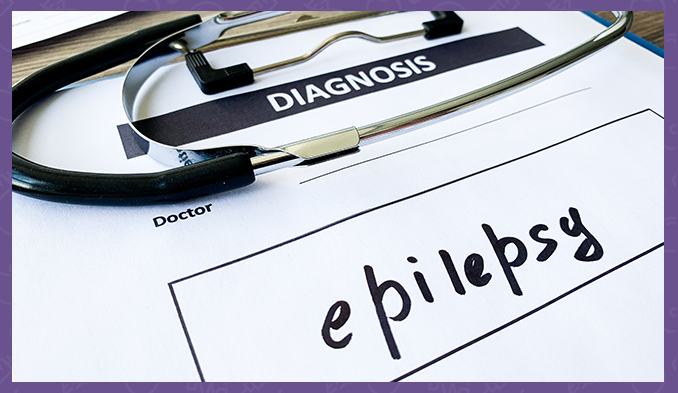
Epilepsy is a chronic neurological disease. It is often referred to as a "condition" to soften the meaning of the word "disease", but let us not forget that epilepsy is an existing neurological disease that has been known in medicine for centuries.
How is Epilepsy diagnosed?
When epilepsy is suspected and in order to diagnose it, the doctor reviews the patient's medical history, asks about the symptomatology that has manifested so far, as well as about the nature of the "seizures". Tests are often required to determine the type of epilepsy and the type of seizures that are occurring.
Types of imaging used to diagnose epilepsy:
- EEG - Electroencephalography - Provides information about the state of the central nervous system.
- Computed tomography (CT) and magnetic resonance imaging (MRI) to detect tumors or other structural changes in the brain
- Magnetoencephalography (MEG) - can identify irregularities in the work of the brain with the help of magnetic signals. Magnetoencephalography (MEG) measures the brain's magnetic activity in real time.
The question of whether epilepsy is a genetic disease cannot yet be answered definitively. According to a 2015 study, about 70-80% of epilepsy cases occur as a result of genetics.
Genes can be linked directly to epilepsy, to brain abnormalities that can lead to epilepsy, or to other genetic conditions that can cause seizures. Some people inherit genetic factors. However, certain genetic mutations can also cause epilepsy in people with no family history of the condition.
Symptoms of epilepsy:
The main symptom in epilepsy is recurrent seizures. However, if any of the following symptoms are noticed, it may also be a sign of the disease. Here's what to look out for and be considered as warning signs, and a likely diagnosis of epilepsy:
- seizure without fever
- brief flushing or confusion (in memory)
- sudden stiffness for no apparent reason
- sudden fall for no apparent reason
- sudden attacks of blinking without causes
- temporary dizziness and inability to communicate
- repetitive movements that seem involuntary
- shivering for no apparent reason
- panic or anger
- particular changes in the senses, such as smell, hearing and touch
Epilepsy, unfortunately, is proving to be a disease that is difficult to diagnose. The reason is that it is possible for patients to have similar symptoms resembling those already listed above and for this not to be related to epilepsy.
Here are some conditions that can cause similar symptoms to those above so as to be confused with the symptoms of epilepsy:
- high fever with epilepsy-like symptoms
- fainting
- narcolepsy - recurrent episodes of daytime sleep
- cataplexy - periods of severe muscle weakness
- sleep disorders
- Nightmares
- panic attack
- a state in which a person forgets the details of their identity
Types of epilepsy:
There are 2 main types of Epilepsy:
- Symptomatic Epilepsy - where the cause of the disease is identified and known (e.g. brain injury)
- Idiopathic epilepsy - there is no clear, visible cause of the disease. It can even be assumed that in this type of epilepsy is hereditary or genetic.
Risk factors:
If we talk about risk factors for epilepsy, here are some we can highlight as suspected ones:
- alcohol consumption
- brain injuries and tumours
- genetics and family history
- perinatal factors, such as stroke and premature birth
- infections of the central nervous system, such as bacterial meningitis, viral encephalitis and neurocysticercosis
Can we talk about epilepsy prevention? How and in what way?
Specific research suggests that people can reduce their risk of developing epilepsy by following certain rules. These rules, of course, can also be summarized as those aimed at our health in general, but let's not forget that prevention and prevention are at the heart of many diseases. In this regard, the World Health Organization - WHO explains that about 25% of epilepsy cases are preventable.
Here's what we should observe to prevent the risk of epilepsy:
- wearing a safety helmet when riding a bicycle or motorcycle to prevent head injuries
- management of risk factors for stroke and heart disease that can cause brain damage leading to epilepsy
- good hygiene and preventive methods to avoid cysticercosis, an infection that is the most common cause of epilepsy worldwide
Studies suggest that regular physical activity can help prevent the development of epilepsy and reduce the frequency of seizures.
Therapy and prognostics in epilepsy.
No guaranteed cure for all cases of epilepsy has been found to date, but people with the disease can usually manage their symptoms.
Taking antiepileptic medication could reduce and stop seizures. About half of all people with epilepsy can stop taking medication if they log 2 years without seizures.
Prescribing the right medication and its dosage is a big challenge for specialists in the field. Finding the right drug and the right dosage are also essential in furthering the dynamics of the disease. Of course, this involves periodic follow-up of the patient with epilepsy, with reporting on his condition. In some cases, where medication therapy does not produce results, surgical intervention or new therapy may be considered.For more information, we at Medical Karadji are at your service.
Call us on the following numbers "Medical Karaj": 0879 977 401 or 0879 977 402.
Also keep an eye on our constantly updated Facebook content.







